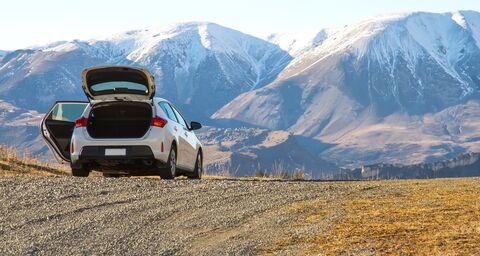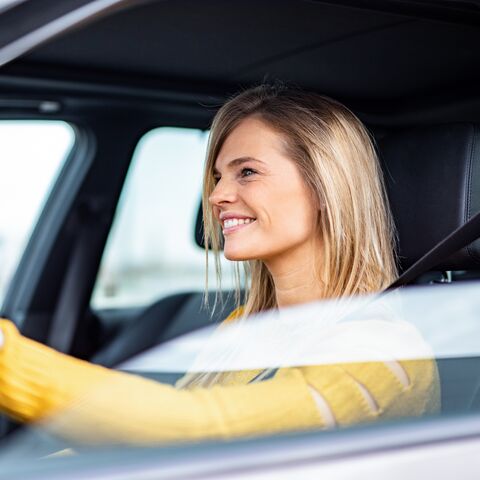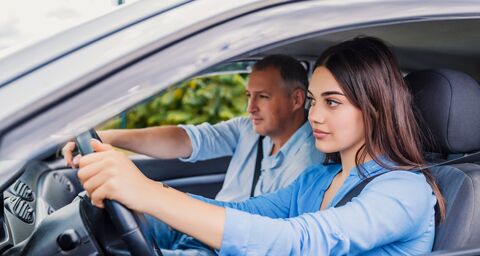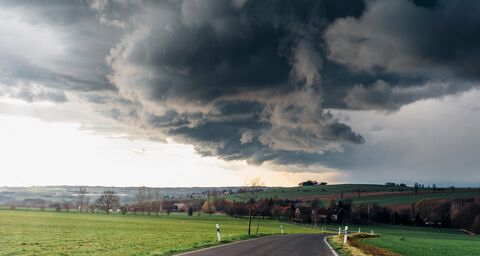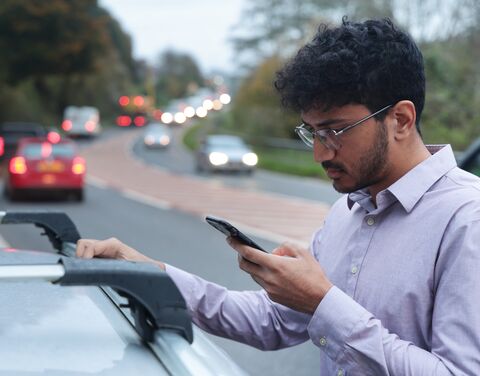
Rear-end collision: What you need to know
Imagine that you’re sitting in your car at a stop light and suddenly – crash! Another car has rear-ended you. Who is liable and whose insurance pays? And what happens when several cars are involved? What should you do? We answer these and other questions in our blog.
Who is at fault in a rear-end collision?
Generally the person who rear ends the car in front of them is held responsible. However, in certain instances, the question of fault can be more complicated. Especially in heavy traffic when a large number of cars is involved.
What happens if several vehicles are involved?
When multiple vehicles are involved, the legal responsibility becomes quite complex. Here’s an example. Marco Gysi realizes too late that the Renault in front of him is the last car in line of stopped traffic. He plows into the stopped Renault, which in turn crashes into the car in front of it. In this case, Marco may be the only one at fault. In such cases though, an investigation is often ordered to ascertain precisely how the accident occurred.
Who decides who’s at fault?
A signed accident report and/or police report can help determine who’s at fault. All statements made by everyone involved in the accident are reviewed. And finally, applicable road traffic laws and the investigating departments and courts will determine liability.
Who pays in a rear-end collision?
Whoever is at fault must pay. In a classic rear-end accident involving several cars, the driver of the vehicle that rear-ended another vehicle is responsible for paying. Or more precisely, the liability insurance of the person at fault must pay.
Do I always have to inform the police if I am involved in a rear-end collision?
No, you don’t. If the question of liability is not contested and there are only minor damages, the police do not need to be involved. You should fill out a European accident report though.
There are some instances in which you are required to notify the police:
- When one of the people involved expressly requests it
- If you suspect that people have been injured and that these injuries are more extensive than just smaller superficial cuts or bruises
- If the accident creates a situation which endangers the safety of other drivers, such as oil spilled across the road, a potential fire hazard, etc.
- If the collision involved a wild animal.
When do I need to notify my insurer of the rear-end collision?
All drivers involved in an accident are required to notify their liability insurers of the accident. For legal reasons, you should record all the details of how the accident happened in a European accident report.By no means should you admit that you are at fault or partly at fault at the scene of the accident. If your insurer or a court come to another conclusion, then you will be responsible for paying for the damage out of your own pocket.
What if I don’t agree with the designation of who’s at fault?
Ideally you have traffic legal protection insurance. It will advise you of your options and will defend your rights – even in court if necessary. For pending legal cases, you can seek advice from MyRight.
What should I do if I have an accident abroad?
Accidents abroad are annoying, but they can be even more exasperating when complicated by communication issues. As an AXA customer, you can report the incident to us and we will help you make your claim for damages.
Should I get my car repaired right away?
The insurer that will likely pay for the damage can have the car appraised by a specialist. If the car is already at a garage for repairs, the insurance company can negotiate the costs directly with the mechanic. As an AXA customer, we recommend that you contact us first to report the claim either online AXA.ch/claims or by calling 0800 809 809.
Which insurance takes care of what in a rear-end collision?
Your liability insurance will pay for damage/injuries that you cause to other vehicles, people or animals (such as dented bumpers or a defective parking sensor of the person you crashed into). If you have accidental damage with collision insurance, it will pay for the damage to your vehicle regardless of who is at fault. Accidental damage without collision insurance will not cover any of the costs in such a case because it only pays for damage caused by accidents where there is no fault, such as accidents involving wild animals or damage by martens or hail. If you are at fault and only have accidental damage without collision, you will have to pay for the damage to your vehicle out of your own pocket.
Tips for avoiding rear-end collisions
- Maintain your distance: Generally the two-second rule applies: The distance between you and the car in front of you should be the size of the distance you just covered in the last two seconds.
- Awareness: Always pay attention to the road and don’t get distracted by your phone, radio, etc. Our tips for avoiding distractions help you stay focused on the road.
- Weather: Always adjust your driving to suit the weather conditions. If it’s snowing, icy or raining, you should keep a greater distance between you and the car ahead of you.
- Roadworthy vehicle: Are your brakes working properly? Do your tires have enough tread left?

